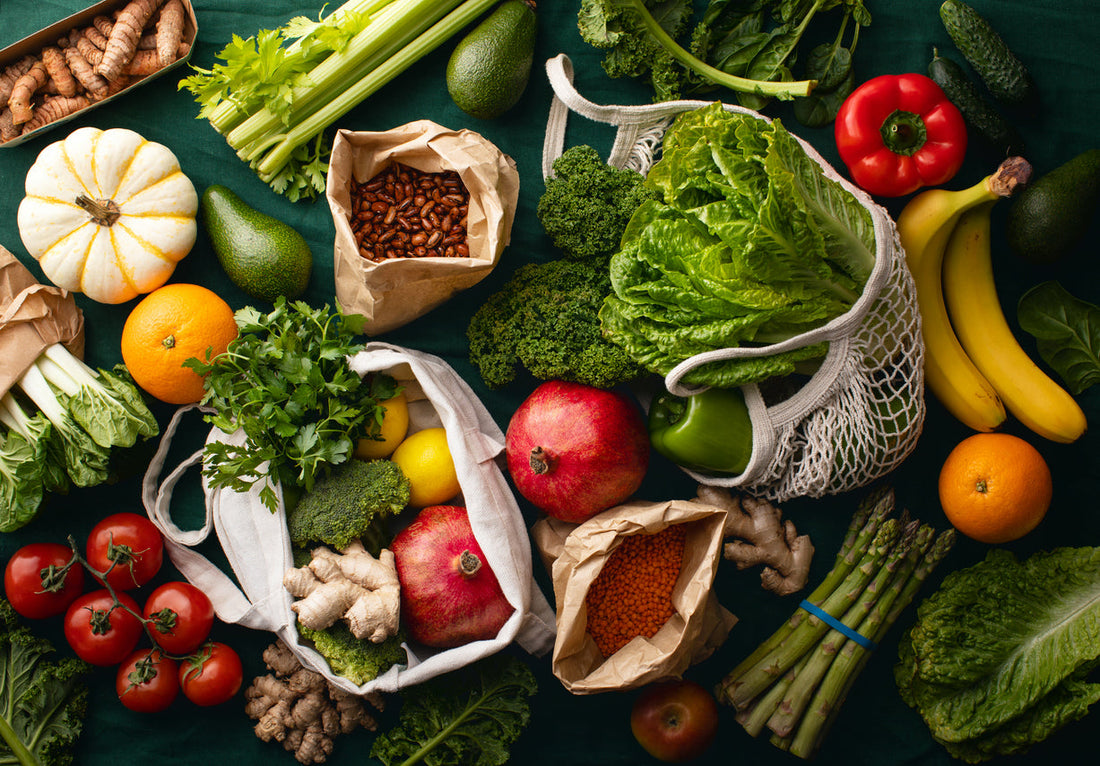
Are you getting enough B vitamins in your diet?
Share
When life is a whirlwind, it's easy to overlook the importance of essential nutrients like B vitamins in the diet. Yet these micronutrients play a crucial role in supporting energy production and overall health, making them an important part of getting through your day.
So, are you getting enough B vitamins in your diet? Let's explore some delicious food sources to ensure you're getting your daily dose, then delve into the significance of these key nutrients and why you need to make sure they’re a priority in your diet.
Food sources of B vitamins
- Whole grains: Whole grains like brown rice, quinoa, and oats are rich in B vitamins, particularly thiamine, riboflavin, and niacin. Start your day with a hearty bowl of oatmeal topped with fruits and nuts for a nutrient-packed breakfast.
-
Leafy greens: Dark leafy greens such as spinach and kale are abundant sources of folate and other B vitamins. Incorporate them into salads or smoothies for something different and a nutrient boost.
-
Legumes: Beans, lentils, and chickpeas are not only excellent sources of plant-based protein but also provide a good dose of B vitamins, including folate and vitamin B6. Whip up a flavourful bean stew or add lentils to your favourite soup for a nutritious meal.
-
Nuts and seeds: Almonds, peanuts, sunflower seeds, and flaxseeds are packed with various B vitamins, particularly biotin and niacin. Enjoy them as a snack or sprinkle them over yoghurt or salads for extra crunch and nutrients.
-
Eggs: Eggs are a versatile food rich in B vitamins, including riboflavin, biotin, and B12. Whether boiled, scrambled, or poached, eggs make for a nutritious addition to any meal.
-
Dairy: Milk, yoghurt, and cheese are excellent sources of B vitamins, especially riboflavin and B12. Opt for low-fat or non-fat varieties to keep your intake of saturated fats in check, or better still, consider plant-based alternatives.
- Seafood: While you might think fatty fish like salmon, tuna, and mackerel are just great sources of protein and essential fatty acids, they also have the added benefit of providing ample amounts of B vitamins, particularly vitamin B12. Grill or bake fish for a delicious and nutritious dinner option.
The importance of B vitamins
B vitamins encompass a group of eight water-soluble vitamins, each with its own unique functions and benefits. These vitamins are predominantly not stored in the body, so regular intake is required. Here's a brief overview of their roles:
Vitamin B1 (Thiamine): Assists in the metabolism of protein, carbohydrate and fat, while also supporting nervous system function. Vitamin B1 100mg.
Vitamin B2 (Riboflavin): Required to support energy production in the body, vitamin B2 can also be beneficial in reducing both the occurrence and duration of mild migraines. Vitamin B2 200mg.
Vitamin B3 (Niacin): Also assists in the metabolism of protein, carbohydrate and fat, while at the same time supporting skin health. Vitamin B3 500mg.
Vitamin B5 (Pantothenic Acid): Commonly referred to as the “anti-stress vitamin”, vitamin B5 supports a health stress response in the body. Vitamin B5 500mg.
Vitamin B6 (Pyridoxine): Assists the synthesis of neurotransmitters, while also supporting nervous system health and emotional wellbeing. Vitamin B6 100mg.
Biotin: Biotin is also considered a B vitamin, supporting the health of hair, skin, and nails. Biotin 3mg.
Folate: Assists in blood health and red blood cell production, while also supporting healthy foetal development. Activated Folate 500.
Vitamin B12 (Cobalamin): Supports haemoglobin formation, blood health and healthy red blood cell production. Activated Sublingual B12.
When dietary intake is inadequate, a supplement can be beneficial. Ensuring an adequate intake of dietary B vitamins is important to support overall health. By incorporating a variety of nutrient-rich foods in your diet, it’s possible to easily meet your daily B vitamin requirements. So, next time you plan your meals, remember the individual importance of each of the Bs and make sure your food choices focus on supporting this very important group of vitamins.
